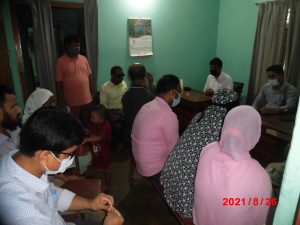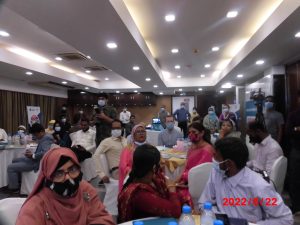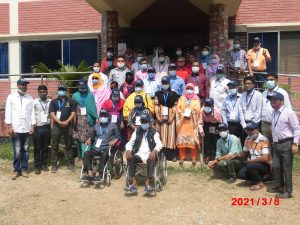Community Empowerment Initiative
Community Empowerment Initiative The Community Empowerment Initiative of SEDAD (Socio-Economic Development Association for Disabled) focuses on strengthening the capacity of marginalized and vulnerable communities—especially persons with disabilities, women, and low-income families—to achieve sustainable social and economic development. Through this initiative, SEDAD promotes inclusive community participation, rights awareness, and collective problem-solving to ensure that no one is left behind in the development process. The program empowers local communities to identify their own needs, mobilize local resources, and engage actively in planning and implementing development activities. Key Activities Capacity Building: Conducting leadership, communication, and organizational management training for community members, especially those with disabilities and women leaders. Rights Awareness and Advocacy: Raising awareness about disability rights, gender equality, and access to public services through workshops, campaigns, and community dialogues. Livelihood and Self-Reliance: Supporting small-scale entrepreneurship, vocational skills training, and savings groups to enhance economic independence. Social Inclusion: Encouraging participation of persons with disabilities in local governance and social decision-making structures. Partnership and Networking: Collaborating with local government, NGOs, and community-based organizations to promote sustainable and inclusive community development. Impact SEDAD’s Community Empowerment Initiative has helped build inclusive, resilient, and self-reliant communities by enhancing social cohesion, improving livelihoods, and promoting equality and dignity for all, particularly for persons with disabilities.










